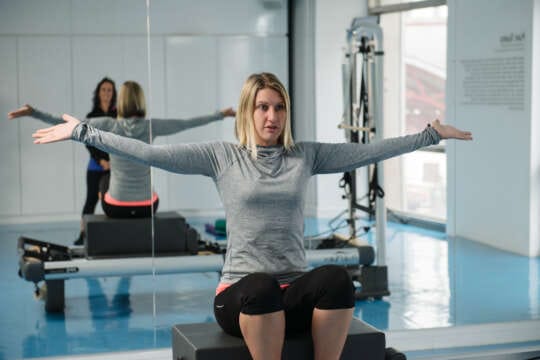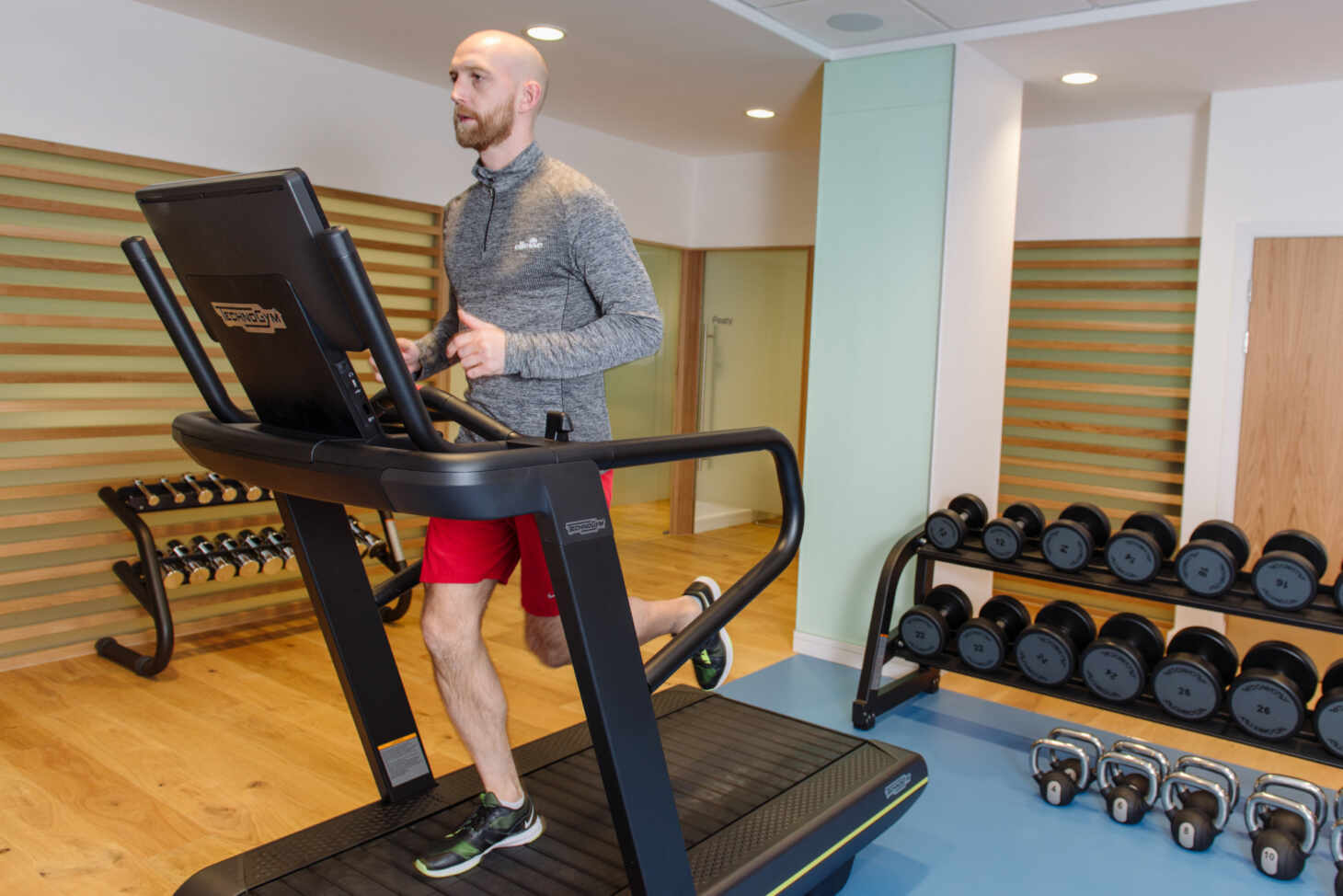The Pure Pod Episode 5: Maintaining Your New Year Fitness Goals

Tom Williams
Head of Performance and Strength & Conditioning Coach
- 24 March, 2025
- Exercise
- 5 min read
Did you commit to a New Year’s Resolution in 2025? A survey by Yougov conducted at the end of 2024 found 27% of Britons have set themself a goal to coincide with the turn of the year.

Three of the top five were pertaining to physical wellbeing and performance. Some 17% of respondents wanted to get fitter and exercise more; 16% wanted to lose weight; 7% wanted to be more healthy in general.
Keeping momentum is difficult. A similar survey conducted in 2017 found one-in-five people that commit to a resolution have slipped up by the 7th January. When we try to change our habits, it’s common for us to aim too high, jeopardising future performance by reaching for a goal that is unsustainable.
As we roll into February, we thought it would be helpful to give our tips on maintaining a lifestyle change. How do you plan an exercise plan that fits around your commitments, and is actually a realistic program for your current fitness level? What should you do when motivation for healthier eating drops? What role does recovery, hydration and sleep play in helping you achieve your goals?
To answer these questions, we’re joined by Clemence Cleave, an award-winning nutritionist, and one of Pure Sports Medicine’s leading strength and conditioning coaches, Tom Williams.
You can subscribe to The Pure Pod on Apple, Spotify, or wherever you get our podcasts. You can listen to the podcast in full below, or read on for the best bits from the conversation.
Here’s what we covered:
- How unsustainable or ill-defined goals can undermine lifestyle changes (2:00)
- The steps medical or fitness professionals may take to help their patients focus on more realistic targets (4:30)
- Why focussing on enjoyment can help us achieve our goals (9:00)
- The possible dangers of over-exercising, or embarking on overly-restrictive diets (13:00)
- How Tom and Clem stay motivated in their fitness, and how a clinician may use their own experiences to relate to their patients (17:15)
- How a strength and conditioning coach can help with building a fitness regime that fits around a busy schedule (21:00)
- Why crash diets are doomed to fail (23:30)
- The importance of maintaining a balanced diet, rather than demonising or completely removing certain food groups to stimulate weight loss (26:45)
- Whether meal planning is an effective strategy for maintaining a healthy diet (29:00)
- How nutritionists and strength and conditioning coaches work within a wider MDT to support a client’s fitness goals (32:30)
- The vital role of sleep and recovery in making healthier lifestyle choices (37:00)
- Our New Year’s resolutions for 2025 (40:00)
- One final tip for those struggling with their fitness goals (43:00)
Why do people fail with their New Year’s fitness goals?
Tom Williams: People tend to fall away pretty early doors because the goals they set are overly ambitious. For example, if someone who doesn’t ordinarily exercise suddenly decides, right ‘this year, I’m going to go to the gym five times a week’, it’s too much of a jump. It’s over ambitious, and it’s going to fall apart as a result.
The other side is that they’re probably not specific enough as well. So things like, ‘I want to lose weight’, or ’I want to move more’ they’re not specific enough, which means they’re easy to fall away from, because there’s no real goal.
Clemence Cleave: People are really focusing on the end result. They want to see something changing straight away on the scales, when we know that successful people are going to stick to the behaviour for the long ride. We see better results when people focus on the behaviour, doing it day after day, slowly, without focusing too much on the result. So we say, trust the process, focus on the behaviour, not so much on the the the end result.
How do you help patients maintain a sustainable lifestyle change?
CC: I try to understand someone’s end goal. Because, often, more exercise or losing weight isn’t actually the reason they want to change in and of itself. Often, they want to slim down for something they’re doing in the summer, or they’re trying to give a better example to their children. It becomes far more personal, and becomes about who you are, what you want to be. And it strengthens your motivation much more.
TW: If someone comes to me and says ‘I want to move more’, I try to work out what that actually means to them. The first thing I’ll look at is getting more steps. We have this idea that 10,000 steps is the goal, but if you’re doing 2 or 3,000 now, are you going to smash the 10K on January 1st?
So we go, okay, we’re at two or 3000 steps for the next couple of weeks. Can we try 5000 steps? And then if we do that, that’s a win. We tick that off. The clients achieve that goal. So then for the next few weeks, okay, can we now build that to 6000 steps. As you’re achieving more goals, the motivation stays, rather than going straight to 10,000 and saying, ‘Oh, look, the first week I didn’t manage it. I’ll try again next year.’ Make it realistic, make it specific, make it measurable.
How can overly restrictive diets, especially those that remove specific food groups, undermine people’s resolutions?
CC: A good diet is a varied diet. It’s a balanced diet. I will always encourage people to avoid cutting out any food group completely. Having said that, we know we eat probably too much refined sugar, too much fat, too much salt, that we probably could do more we could do with more fruit and vegetables, more fibre, protein.
TW: I have clients that cut out carbs, or they’re on some new diet. And I always say, well, that’s great, because you might see some short term results. But using the carb example, are you never going to eat carbs again for the rest of your life? Probably not. So what happens when we introduce carbs again?
How might an S&C coach and a nutritionist work together to help a patient with a goal? For example, how might you approach a client that wants to lose fat, but maintain muscle and strength at the same time?
TW: We know that if you increase your activity in the gym, but don’t make changes to your nutrition, it’s highly unlikely you’ll see results in the gym.
If someone comes to me, I’ll point them in Clem’s direction and say, ‘listen, I can take care of the exercise side of things, but really, when it comes to kind of losing that weight, that’s where Clem is going to show her expertise.’
I’ll also ask them about their injury history. If they have some nagging or previous injuries, I’ll refer them to our physios. That allows us to build a regime that fits their needs.
How important is sleep and recovery in helping you make better choices for your health?
CC: If you are chronically sleep deprived your hunger is heightened. You are going to crave more energy dense foods. You’re going to be seeking those biscuits, that chocolate bar, in a way that if you’re rested, you’re far more able just to make better choices and feel less hungry.
TW: If sleep was a performance enhancing drug, then everyone would be popping it daily. It’s literally the best thing you can do to prioritise sleep. Don’t overstretch yourself, make sure you get rest days in as it will help you maintain momentum, and that’s where all the adaptation happens.
What would your final piece of advice be to someone that is struggling with their New Year’s resolutions?
CC: Be clear on why it’s important for you. Why is it so valuable for you? How does it sit with your life? Because at first it’s going to be uncomfortable, it’s going to be difficult. And the second piece of advice. As you are engaging with this new behaviour, keep thinking of how you can make it more sustainable. How can you really transform it so it embeds into your life neatly and solidly for the long term?
TW: If we’re in February, and January hasn’t gone too well because maybe your goals were too ambitious or unrealistic, then scale it back a bit. Don’t wait till next January. Be kind to yourself, redial, check in with yourself. How can you adapt these goals so you can achieve them?

Advice
Over the last 20+ years our experts have helped more than 100,000 patients, but we don’t stop there. We also like to share our knowledge and insight to help people lead healthier lives, and here you will find our extensive library of advice on a variety of topics to help you do the same.
OUR ADVICE HUBS See all Advice Hubs
